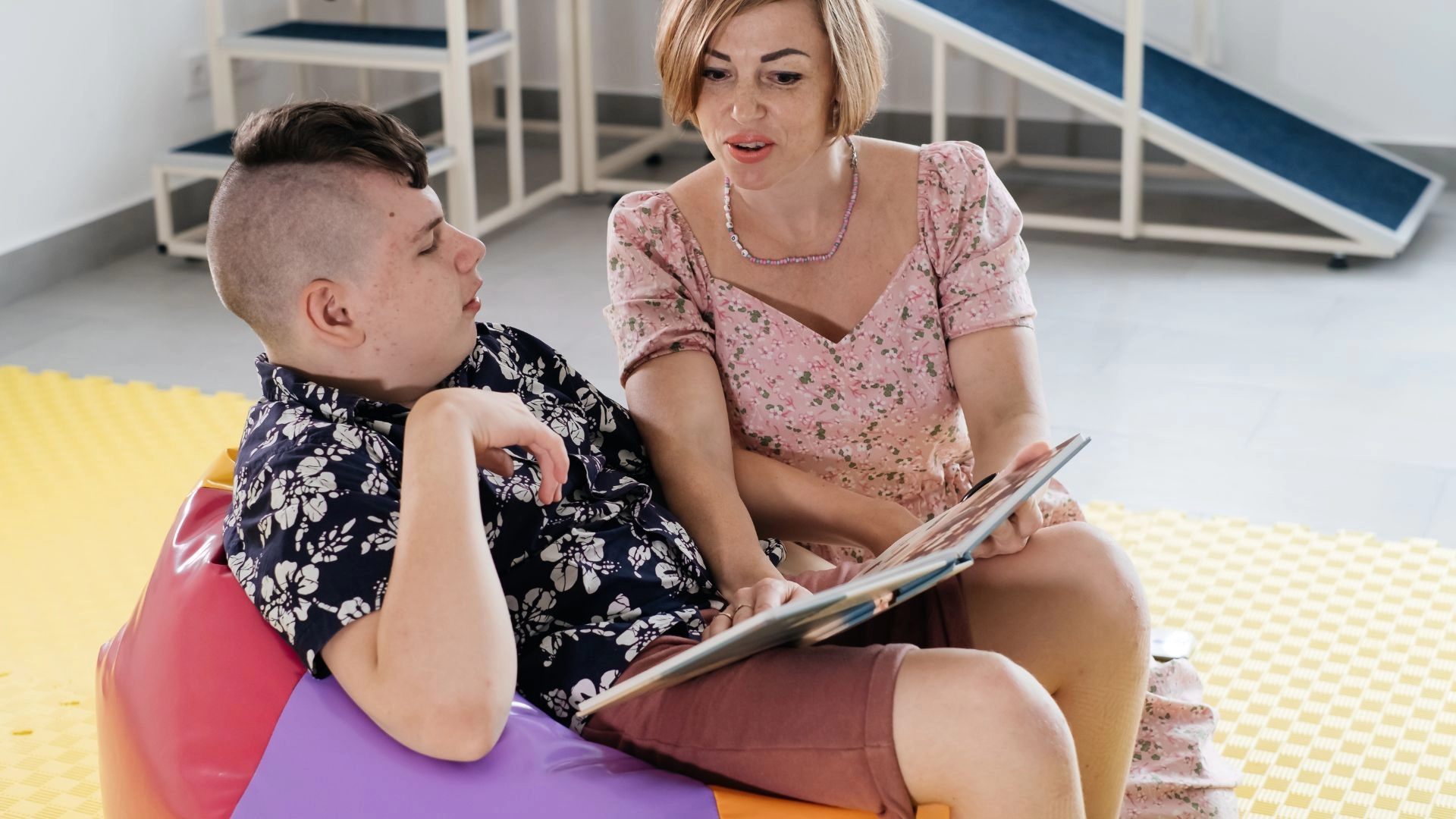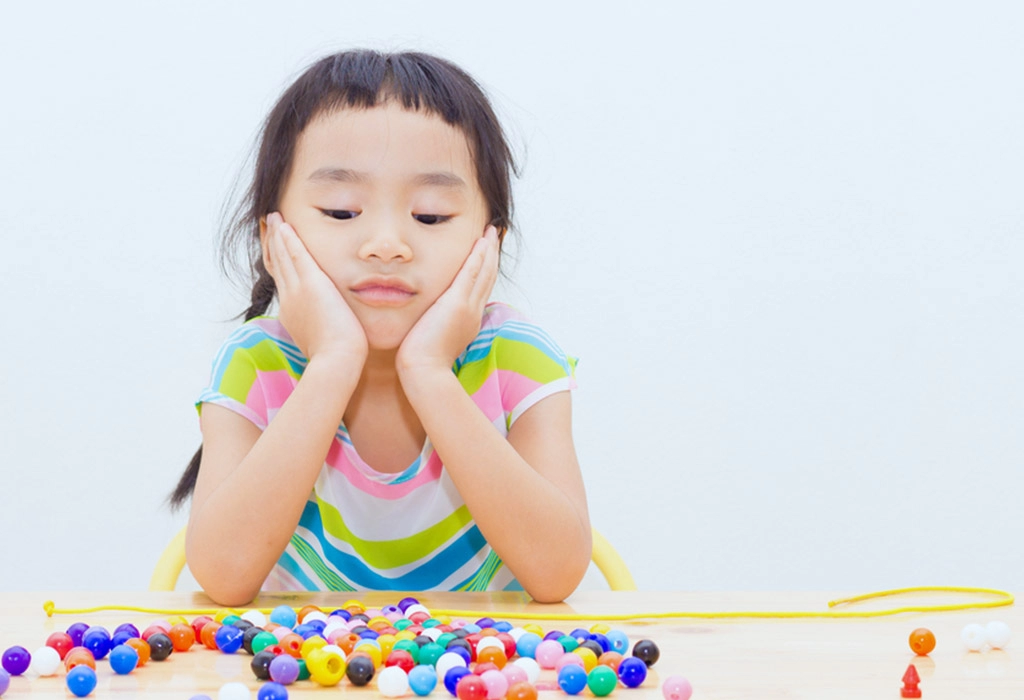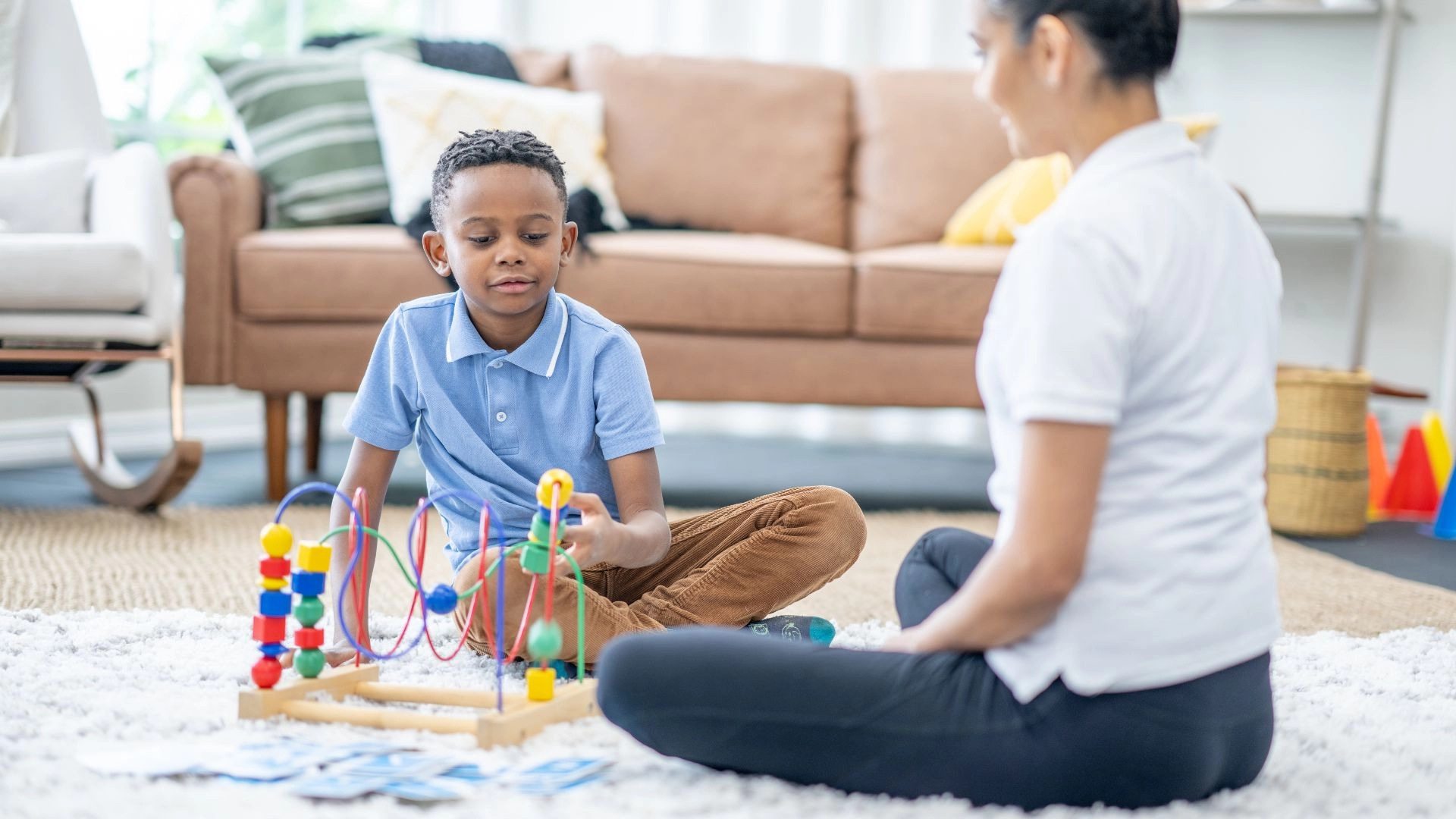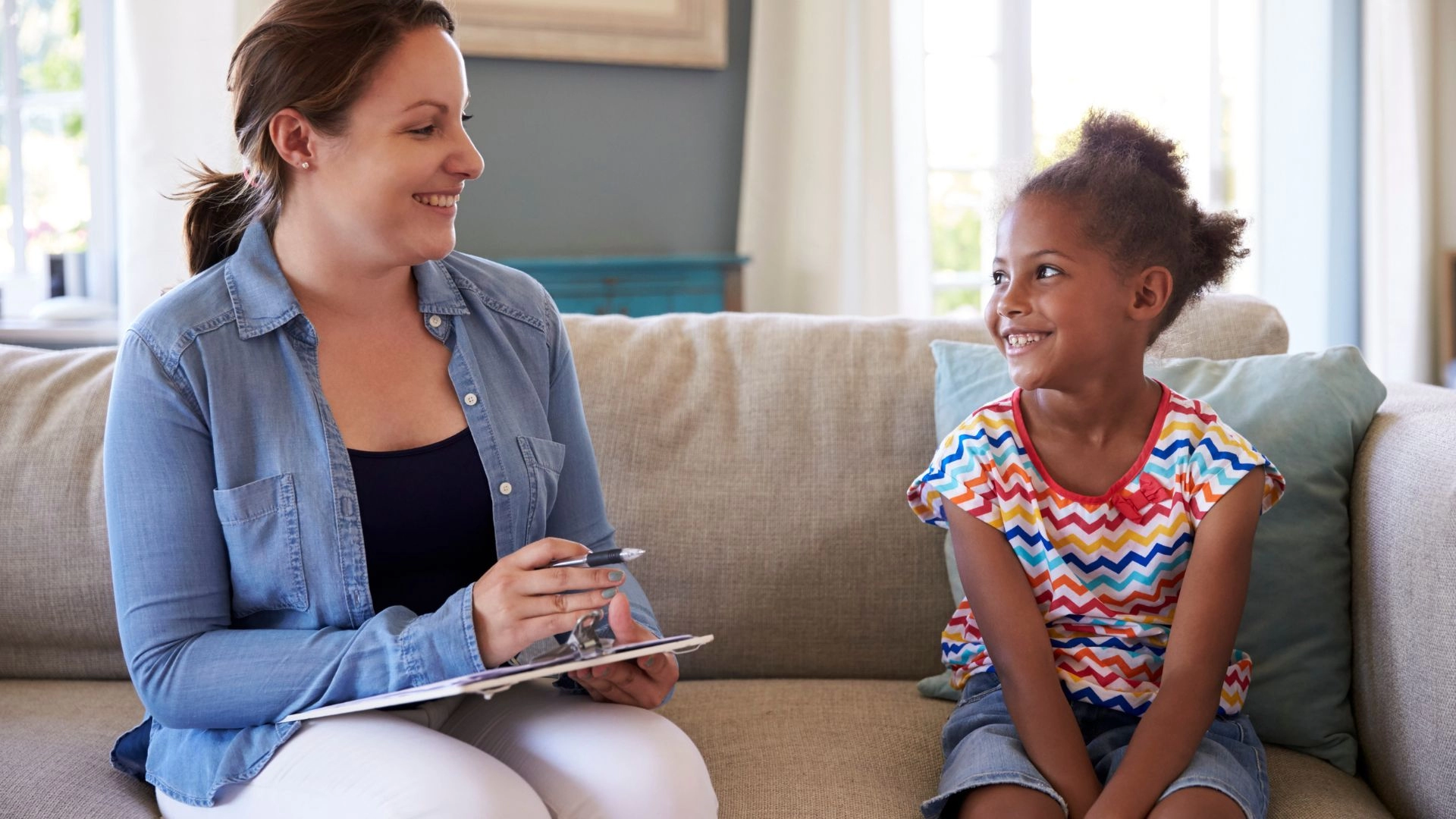We recognize how challenging OCD can be for children and their families, and in Oakville, Child Counseling Therapy provides compassionate support. Our approach includes safe environments where kids can express their feelings while learning effective coping strategies. We use techniques like Cognitive Behavioral Therapy (CBT) and Exposure and Response Prevention (ERP) to help kids face their fears gradually. Involving families is key, strengthening connections and communication. Early intervention greatly enhances recovery prospects, equipping children with the tools they need. There’s much more to explore about how our services can make a difference in your child’s journey.

About Child Counselling Therapy
Child counseling therapy offers a safe space for young ones to express their feelings and navigate the challenges of mental health, like obsessive-compulsive disorder (OCD). By working with a child therapist, we can help children address anxiety in children and develop coping strategies that are tailored to their unique needs. This supportive environment fosters emotional support for children, allowing them to feel understood and validated.
When tackling OCD, effective treatment often involves cognitive behavioral therapy (CBT), a structured approach that helps kids recognize and change negative thought patterns. Through therapy for kids with anxiety, children can learn to manage their symptoms and gain confidence in their ability to face challenges. Our commitment to providing thorough child mental health services means we can also address issues related to childhood trauma, should they arise.
Ultimately, child counseling therapy not only supports children dealing with OCD but also nurtures their overall emotional well-being. By fostering a strong therapeutic relationship, we empower our young ones to develop resilience and a healthier outlook on life. Together, we can make a meaningful difference in their journey towards mental wellness.
Exploring Obsessive-Compulsive Disorder (OCD) in Children
Obsessive-compulsive disorder (OCD) in children can be a challenging and often misunderstood condition, affecting their daily lives and emotional well-being in profound ways. As we explore OCD in children, we recognize that it typically manifests through obsessive thoughts and compulsive behaviors that can lead to significant anxiety. It’s essential to understand that this isn’t just a phase or something they can simply ‘get over.’
Children with OCD may engage in repetitive rituals or avoid certain situations to manage their overwhelming feelings. This anxiety disorder can severely impact their school performance, social interactions, and family life. Through child counseling therapy, we can provide support, helping them navigate these challenges.
Behavioral therapy, including cognitive-behavioral therapy (CBT for OCD), has proven effective. Techniques like exposure and response prevention empower children to confront their fears gradually, allowing them to break free from the cycle of compulsive behavior. By creating a safe environment for open dialogue, we encourage children to express their feelings and learn coping strategies. Together, we can help them gain control over OCD, fostering resilience and improving their overall emotional health.

How Therapy Helps Children Manage OCD
Therapy plays an essential role in helping children manage the anxiety and compulsions associated with OCD, providing them with the tools to regain control over their lives. Through child counseling therapy, we can guide our kids in understanding their OCD symptoms, helping them feel less isolated in their struggles.
In therapy for children, we focus on both cognitive and behavioral strategies that empower them to confront their fears rather than avoid them. Cognitive therapy for kids teaches them to challenge negative thoughts, while behavioral therapy for kids encourages gradual exposure to anxiety-inducing situations. This dual approach is crucial in child anxiety treatment, helping our children develop healthier coping mechanisms.
Additionally, therapy for troubled youth can foster a supportive environment where children feel safe to express their feelings and frustrations. By promoting child mental wellness, we enable our kids to build resilience and improve their overall quality of life.
Ultimately, effective OCD management requires patience and understanding, but with the right support, we can help our children navigate their challenges and emerge stronger, more confident, and better equipped to deal with the complexities of life.
Using Cognitive Behavioral Therapy (CBT) to Treat OCD in Kids
Many families find that Cognitive Behavioral Therapy (CBT) offers an effective way to help kids confront and manage their OCD symptoms. This type of child counseling therapy focuses on changing negative thought patterns and behaviors associated with obsessive-compulsive disorder. It empowers our children with valuable skills, enabling them to face their fears without resorting to compulsive behaviors like excessive handwashing.
Through various child therapy techniques, CBT teaches kids practical OCD coping strategies that can greatly improve their daily lives. For instance, children learn to recognize triggers and develop healthier thought patterns, which can alleviate their anxiety. This therapy for kids not only addresses the symptoms of OCD but also enhances their overall mental health in kids, providing a foundation for resilience.
Additionally, CBT is often integrated into broader child behavioral therapy approaches, addressing the underlying issues related to therapy for childhood anxiety. By engaging in this supportive and structured environment, our children can thrive, gaining confidence and reducing the hold OCD has on their lives. Together, we can navigate this journey, ensuring our kids have the tools they need to lead fulfilling, anxiety-free lives.
Understanding Exposure and Response Prevention (ERP) Therapy for Children with OCD
One effective approach we can explore for helping children with OCD is Exposure and Response Prevention (ERP) therapy, which focuses on gradually confronting fears while learning to resist the urge to engage in compulsive behaviors. Through ERP therapy, children are gently exposed to situations that trigger their obsessive thoughts, allowing them to practice emotional regulation in children without resorting to compulsions.
In our child therapy sessions, we’ll work collaboratively to identify specific fears and establish a hierarchy, starting with less anxiety-provoking scenarios and gradually progressing to more challenging ones. This supportive process helps children develop resilience and coping strategies, ultimately reducing the impact of obsessive-compulsive disorder on their daily lives.
As we engage in this psychotherapy for OCD, we’ll also emphasize the importance of parental involvement, as family support plays a vital role in the effectiveness of ERP therapy. Together, we can foster a safe environment where children feel understood and empowered to face their fears. In child counseling, it is important to address child behavior disorders with compassion and patience, guiding our little ones towards a healthier, more fulfilling life. With time and dedication, we can help them overcome their compulsive behaviors and thrive.
Incorporating Play Therapy for Children Struggling with OCD
Building on the foundation of ERP therapy, incorporating play therapy can be a valuable tool in helping children struggling with OCD express their thoughts and feelings in a safe and engaging way. Through therapeutic play, we can create a child-centered therapy environment where kids feel comfortable exploring their emotions and fears related to obsessive-compulsive disorder.
Play therapy allows for natural expression, making it easier for children to articulate their anxieties. By engaging in child therapy activities, we can gently introduce concepts of child behavior modification, helping them manage their OCD symptoms while learning coping strategies. This method not only supports emotional healing for children but also fosters a sense of empowerment.
As we observe children engaging in play, we gain insights into their inner world, which can guide us in tailoring our child counseling therapy approaches. The combination of ERP and play therapy provides a thorough framework for addressing OCD, making therapy for children both effective and enjoyable. Ultimately, our goal is to help children build resilience and confidence, enabling them to navigate their challenges with greater ease. Together, we can make a meaningful difference in their lives.

Family Therapy for OCD: Strengthening Family Support
Family therapy can play an essential role in supporting children with OCD by fostering open communication and understanding among family members. When we engage in family support therapy, we create a safe space where everyone can express their feelings and struggles related to obsessive-compulsive disorder. This collaborative approach not only helps our child but also strengthens our family bonds.
In child counseling therapy, we learn to recognize the impact of OCD on the emotional well-being of children and how it can affect family dynamics. By participating in child and family counseling, we can better understand the challenges our child faces while developing strategies to manage behavioral disorders in children. This shared journey of understanding equips us with the tools to support our child effectively.
Additionally, therapy for school-aged children helps us navigate the stresses our children encounter in their daily lives, including school and social situations. By addressing these challenges together, we can help our child build resilience and coping skills. Ultimately, family therapy empowers us to be proactive advocates for our child’s emotional health, ensuring they feel loved and supported throughout their journey.
Helping Children with OCD Develop Emotional Regulation Skills
Helping children with OCD develop emotional regulation skills is vital for their overall well-being, as it empowers them to manage their feelings and responses to anxiety more effectively. In our child counseling therapy sessions, we focus on fostering emotional development through child-focused therapy techniques. By teaching kids about their emotions, we help them recognize triggers and understand their feelings related to obsessive-compulsive disorder.
Our child therapy programs incorporate therapeutic interventions for children that enhance stress management for children. We encourage children to express their emotions and develop coping strategies, promoting resilience and self-awareness. Through these therapeutic practices, kids learn to navigate their feelings in healthier ways.
Additionally, we emphasize the importance of mental health treatment in a supportive environment. By equipping children with the tools they need to regulate their emotions, we help them build a foundation for long-term emotional well-being. Child resilience therapy plays an essential role in this process, as it empowers children to bounce back from challenges and cultivate a positive outlook. Together, we can guide these children toward a brighter future, where they feel more in control of their emotions and less burdened by their OCD.
Managing Anxiety and OCD Symptoms in Children
As we continue to support children in developing emotional regulation skills, it’s important to address the management of anxiety and OCD symptoms that often accompany their experiences. Anxiety management is essential for kids dealing with obsessive-compulsive disorder (OCD) and can greatly improve their daily lives. Through child counseling therapy, we can help them understand and cope with their compulsive behaviors, reducing the impact these symptoms have on their development.
In our approach, we emphasize early intervention therapy, ensuring that children receive the support they need as soon as possible. This proactive strategy not only aids in alleviating anxiety but also fosters resilience in their adolescent mental health. By incorporating trauma-informed therapy, we create a safe environment where children can express themselves without fear of judgment.
Psychological therapy for children, particularly therapy for kids dealing with OCD, focuses on tailored techniques that empower them to confront their fears and develop healthier coping mechanisms. Together, we can navigate these challenges, ensuring that our children grow into emotionally balanced individuals equipped to handle life’s uncertainties. With compassion and understanding, we’re here to support every step of their journey.
School-Based Counseling and Support for Kids with OCD
Implementing school-based counseling can play an essential role in supporting kids with OCD, creating a safe space where they can learn to manage their symptoms alongside their peers. By integrating child counseling therapy into the school environment, we can provide targeted support for children dealing with obsessive-compulsive disorder. School counseling professionals can offer individualized therapy for kids, helping them address obsessive fears and compulsive behaviors within the familiar setting of their school.
These counseling services not only foster a sense of acceptance but also promote understanding among classmates, which can be invaluable for a child coping with a mental health disorder. Additionally, when crises arise, having crisis intervention for children readily available allows for immediate assistance, ensuring that no child feels alone in their struggles.
Parent-child therapy can further enhance this support system, bridging the gap between home and school life. By working together, parents and school counselors can create a thorough plan that empowers children to thrive academically and socially, despite the challenges posed by OCD. Ultimately, our goal is to cultivate a nurturing environment where all children can feel safe, supported, and equipped to overcome their obstacles.
Group Therapy for Children with OCD: Fostering Emotional Strength
Building on the support offered in school-based counseling, group therapy for children with OCD provides a unique opportunity for kids to connect with peers who understand their experiences, fostering emotional strength and resilience together. In these sessions, children learn they’re not alone in facing obsessive-compulsive disorder, which can greatly alleviate feelings of isolation.
Group therapy for kids allows them to share their challenges regarding compulsive behaviors in a safe, supportive environment. Here, they can practice child social skills therapy, enhancing their ability to communicate and relate to others. The therapeutic support for children emphasizes not just overcoming OCD but also building essential life skills.
As they engage in activities designed for therapy for teens and younger kids, participants develop coping strategies that can mitigate the impact of their childhood emotional issues. This collective journey often leads to breakthroughs, making it easier to manage anxiety and stress.
Through parent-child therapy components, families can learn together, reinforcing the lessons discussed in group settings. By fostering connections and sharing experiences, we help our children thrive, ensuring they feel empowered to tackle their challenges with the strength of community behind them.
Parenting Strategies to Support Children with OCD
Supporting a child with OCD requires a thoughtful approach that combines understanding, patience, and effective strategies to help them navigate their challenges. We need to recognize that obsessive-compulsive disorder can greatly impact our child’s daily life, and it is crucial to provide consistent parenting support.
One of the most effective strategies is to engage in parent-child therapy. This allows us to learn how to address obsessive behaviors without reinforcing compulsive behaviors. By seeking child counseling therapy, we can gain tools to help our child face their fears constructively.
It is also important to maintain open communication. Encouraging our child to express their feelings can foster a sense of safety and understanding. We should avoid dismissing their fears, as this can exacerbate their anxiety. Instead, we can validate their feelings and guide them gently through their challenges.
Additionally, if our child is dealing with other issues like ADHD or depression, we may want to explore therapy for ADHD in children or child depression therapy to provide a thorough approach. Remember, seeking support, whether through grief counseling for children or adolescent counseling, is a sign of strength and commitment to our child’s well-being.
Addressing Emotional Challenges in Kids with OCD
Steering through the emotional challenges that come with OCD can feel overwhelming for both kids and parents, but understanding these feelings is the first step towards effective coping strategies. Many children experience distressing thoughts and obsessive worries that can lead to compulsive behaviors. In child counseling therapy, we focus on helping them recognize and manage these emotions.
Through child and adolescent counseling, we can introduce mindfulness for kids, which teaches them to be present and reduce anxiety. This approach, combined with play-based therapy, allows children to express their feelings in a safe and engaging environment. It’s vital to address these emotional challenges early on, as they can greatly impact a child’s development and well-being.
Parent-child therapy can also play an important role, as it fosters open communication between parents and children. By working together, we can create a supportive atmosphere where kids feel understood and empowered to face their obsessive thoughts. With compassion and the right strategies, we can help our children navigate the complexities of obsessive-compulsive disorder, leading to healthier emotional outcomes and a brighter future.
Why Early Intervention is Critical for Childhood OCD
Early intervention in childhood OCD is crucial, as it greatly enhances the chances of long-term recovery and helps kids develop healthier coping mechanisms before their challenges escalate. When we address obsessive-compulsive disorder early, we can minimize the impact of obsessive thoughts and compulsions on a child’s daily life. By engaging in child counselling therapy, we can guide children through their cognitive distortions and teach them effective strategies to manage their compulsive behaviors.
It’s essential to recognize that the longer we wait to intervene, the more entrenched these patterns can become. Early intervention not only reduces the severity of symptoms but also builds resilience. In many cases, therapy for kids may be complemented by treatments like selective serotonin reuptake inhibitors, which can further aid in managing symptoms.
Art Therapy as a Creative Outlet for Children with OCD
Finding creative outlets can greatly benefit children with OCD, and art therapy offers a unique way for them to express their feelings and experiences in a safe and supportive environment. Through art therapy for kids, children can channel their intrusive thoughts and emotions into tangible creations. This process helps them articulate feelings that might be difficult to express verbally, especially when dealing with obsessive-compulsive disorder.
Art therapy encourages children to explore their fears, such as contamination fear, and the repetitive actions associated with their compulsive behaviors. It provides an opportunity to visualize and confront their OCD rituals, allowing for healthier coping mechanisms to develop. By engaging in this supportive therapy for children, we foster an environment where they can feel understood and validated.
Additionally, parent-child therapy can enhance the benefits of art therapy. Parents can participate in the creative process, deepening their understanding of their child’s obsessive behavior patterns and strengthening their bond. Together, we can create a positive space for healing, helping children navigate their challenges with compassion and creativity. Ultimately, art therapy can be a powerful tool in managing OCD, offering hope and resilience for both kids and their families.
Reach Out to Our Child Counseling Therapy Center for OCD Assistance in Oakville
If your child is struggling with OCD, we invite you to reach out to our compassionate Child Counseling Therapy Center in Oakville for the support they need. Our team specializes in pediatric counseling, offering tailored treatment for OCD that addresses the unique challenges of obsessive-compulsive disorder. We recognize how distressing obsessive-compulsive behaviors, such as compulsive checking and reassurance-seeking, can be for both children and parents.
Through our counseling for kids and adolescent therapy, we create a safe space for your child to express their feelings and fears. Our approach often includes parent-child therapy, helping families navigate OCD together while reinforcing healthy coping strategies. We’ll guide you through the OCD diagnosis process and work with your child to develop effective techniques to manage their symptoms.

About Town of Oakville
Nestled along the shores of Lake Ontario, the Town of Oakville offers a vibrant community that prioritizes the well-being and development of its residents, making it an ideal place for families seeking support and resources. We’re fortunate to live in Oakville, Ontario, where we can access various services, including family therapy and parent-child therapy, tailored to meet our children’s needs.
For those facing challenges like obsessive-compulsive disorder (OCD), we have compassionate professionals nearby who understand the impact of obsessive doubts and compulsive behaviors on daily life. Whether it’s checking behaviors that disrupt routines or the need for medication for OCD in adults, we can find the help we need right here.
Many counseling centers provide specialized programs to support our children through therapy. We can work together as a community to raise awareness about OCD and foster an environment where families feel comfortable seeking assistance. By connecting with local resources, we can guarantee that our children receive the care they deserve, allowing them to thrive in a supportive and understanding environment.

- Dundas Street (Highway 5)
- Trafalgar Road
- Lakeshore Road
- Speers Road
- Third Line
- Upper Middle Road
- Bronte Road
- Royal Windsor Drive
- Winston Churchill Boulevard
- Ford Drive
- Dorval Drive
- Rebecca Street
- Great Lakes Boulevard
- 16 Mile Drive
- QEW (Queen Elizabeth Way)
- North Service Road
- South Service Road
- Maple Grove Drive
- Burnhamthorpe Road
- Glenashton Drive
- West Oakville
- Falgarwood
- Kerr Village
- Clearview
- West Oak Trails
- Bronte
- Palermo
- Ennisclare Park
- Glen Abbey
- Uptown Core
- Oakville East L6K
- Oakville South L6L
- Oakville North L6H
- Oakville West L6M
- Oakville Northeast L6J
Frequently Asked Questions
What Age Is Appropriate for Child Counseling Therapy for OCD?
When it comes to child counseling therapy for OCD, there’s no one-size-fits-all age. We believe that children as young as six can benefit from therapy if they’re showing symptoms. It’s important for us to remember that each child’s readiness varies. We should look for signs of distress or impairment in their daily lives. Early intervention can make a significant difference, so reaching out sooner rather than later is always a good idea.
How Long Does Therapy Typically Take for Children With OCD?
When we think about how long therapy typically takes for children with OCD, it really varies. Many factors come into play, like the child’s unique needs and the severity of their symptoms. Generally, we might see progress within a few months, but some kids may need longer for effective treatment. It’s important to remember that everyone’s journey is different, and we’re here to support them every step of the way, no matter how long it takes.
Are There Any Side Effects of Therapy for OCD in Children?
When we think about therapy for OCD in children, it’s important to recognize that side effects can vary. While therapy is generally safe, some kids might experience temporary discomfort, like increased anxiety or frustration as they confront their fears. We need to remind ourselves that these feelings often improve with time and support. It’s vital we maintain open communication with our child and their therapist to guarantee the best outcomes for their journey.
Can Medication Be Combined With Therapy for OCD Treatment?
Absolutely, medication can be combined with therapy for OCD treatment. We’ve seen that this approach often enhances the overall effectiveness. While therapy helps develop coping strategies and address underlying issues, medication can provide relief from symptoms, allowing us to engage more fully in the therapeutic process. It’s crucial to work closely with healthcare professionals to find the right balance, ensuring we’re supporting our mental health in the best way possible.
How Can I Choose the Right Therapist for My Child’s Needs?
Choosing the right therapist for our child’s needs can feel overwhelming, but we can start by considering their experience with specific issues. It’s important to look for someone who’s compassionate and has a good rapport with kids. We should also check their credentials and ask about their approach to therapy. Trusting our instincts and discussing our concerns openly can help us find a supportive environment that feels safe for our child.
